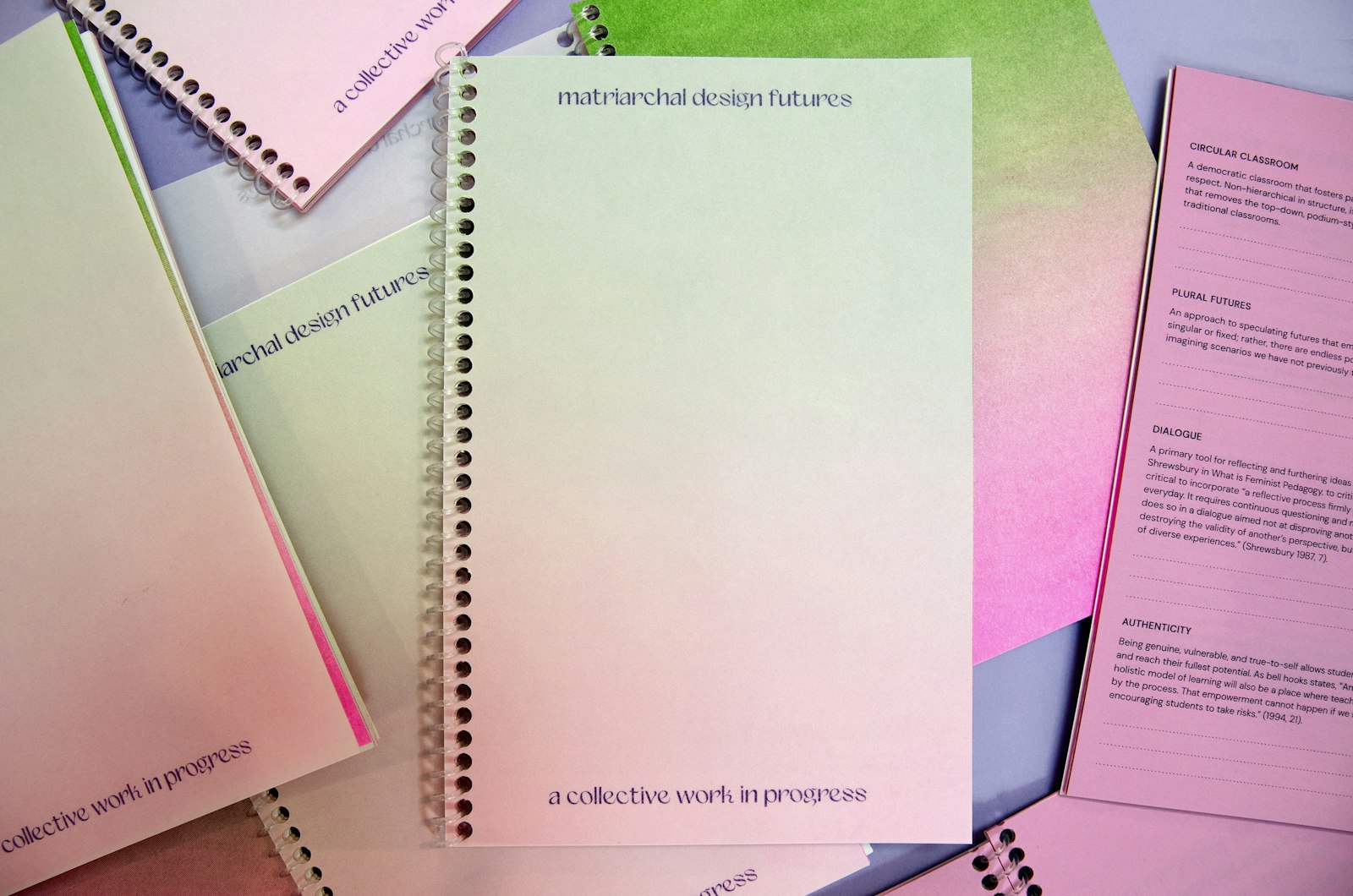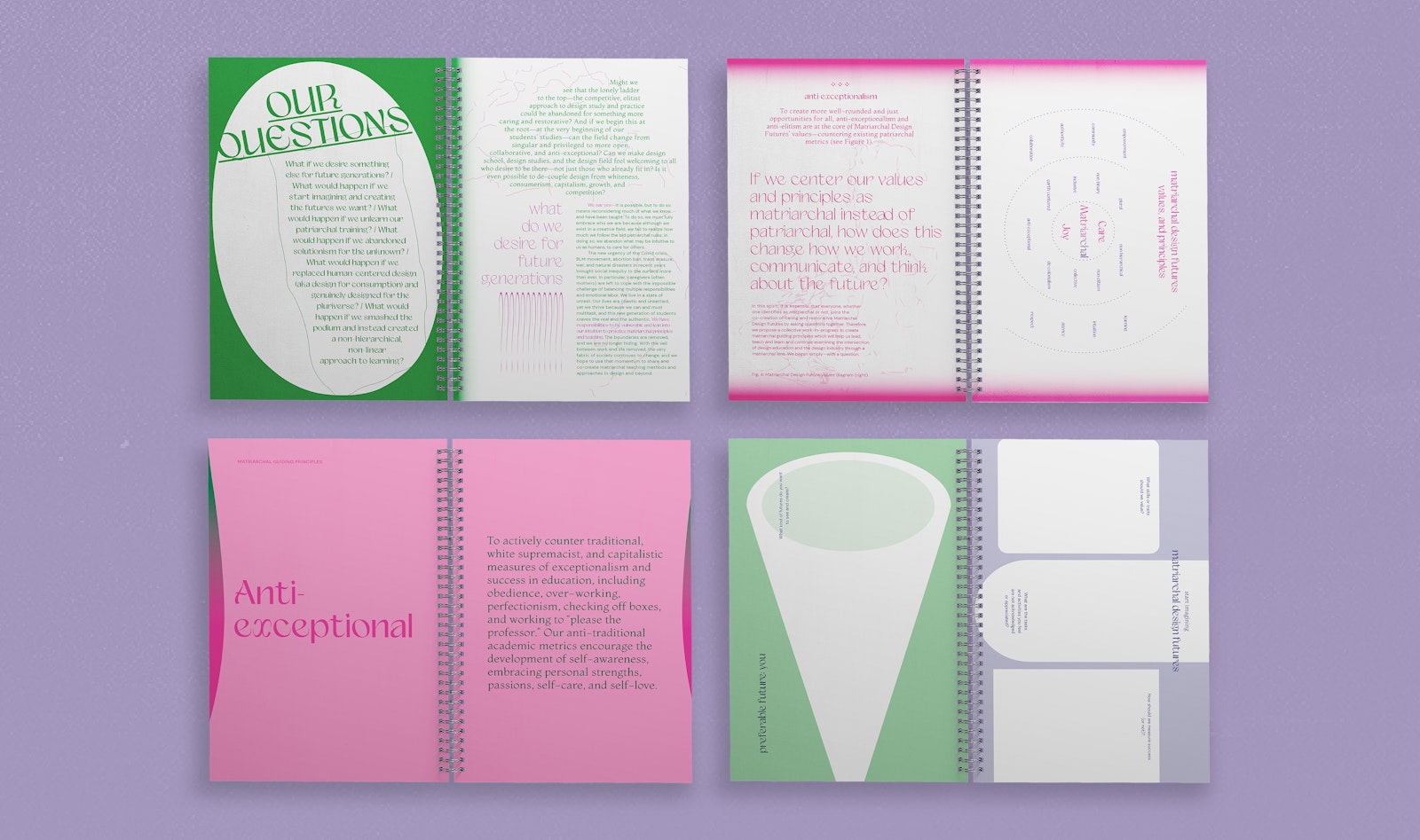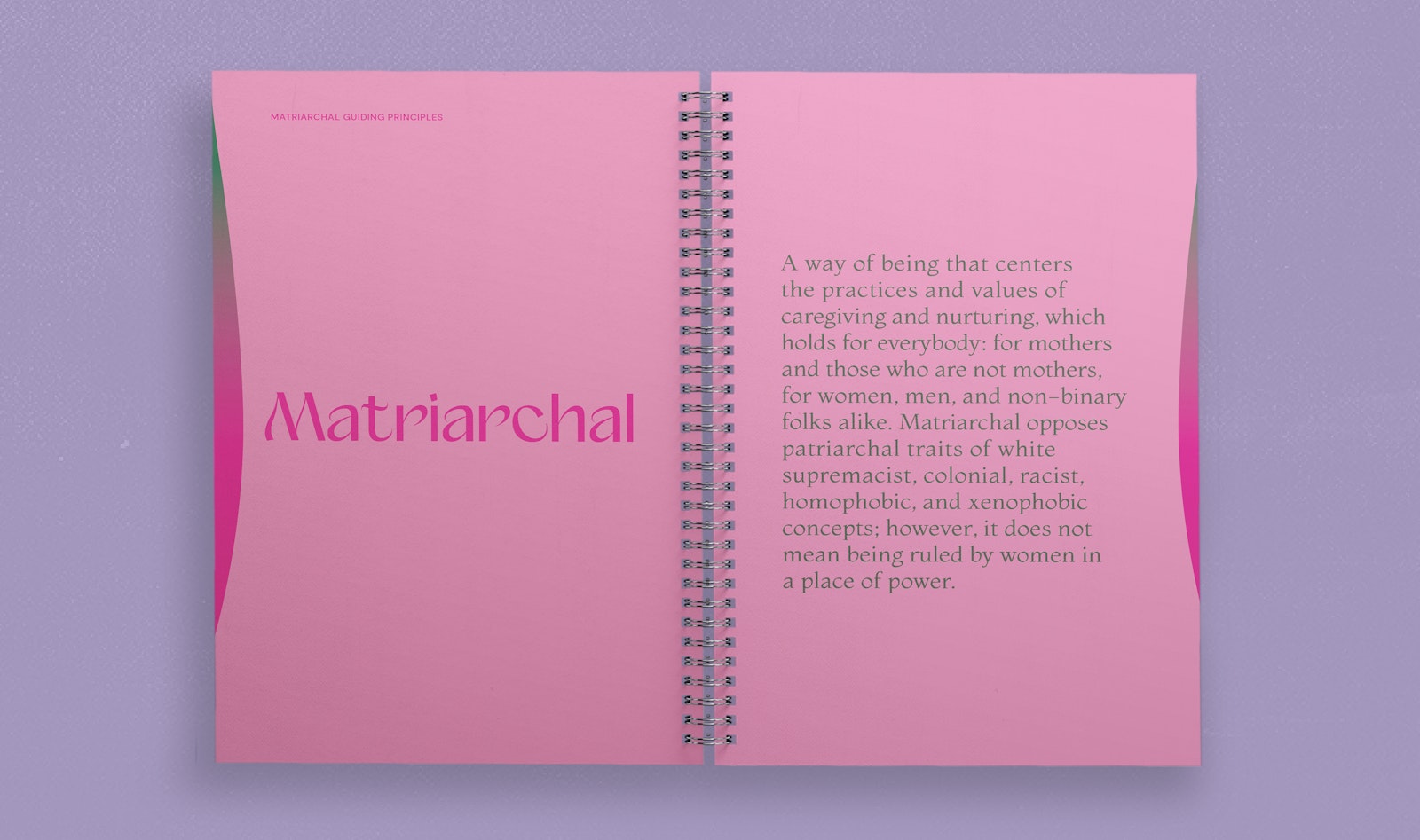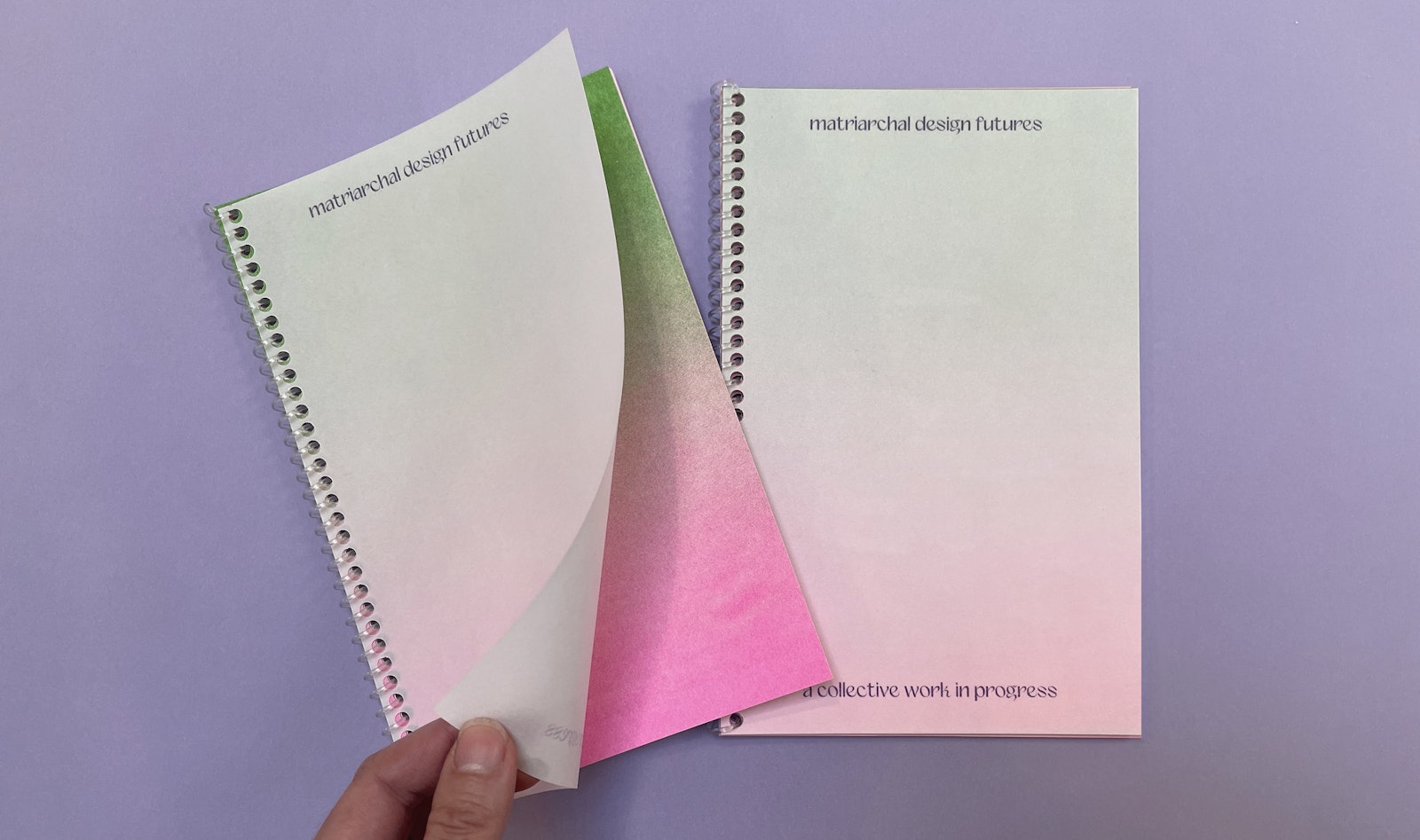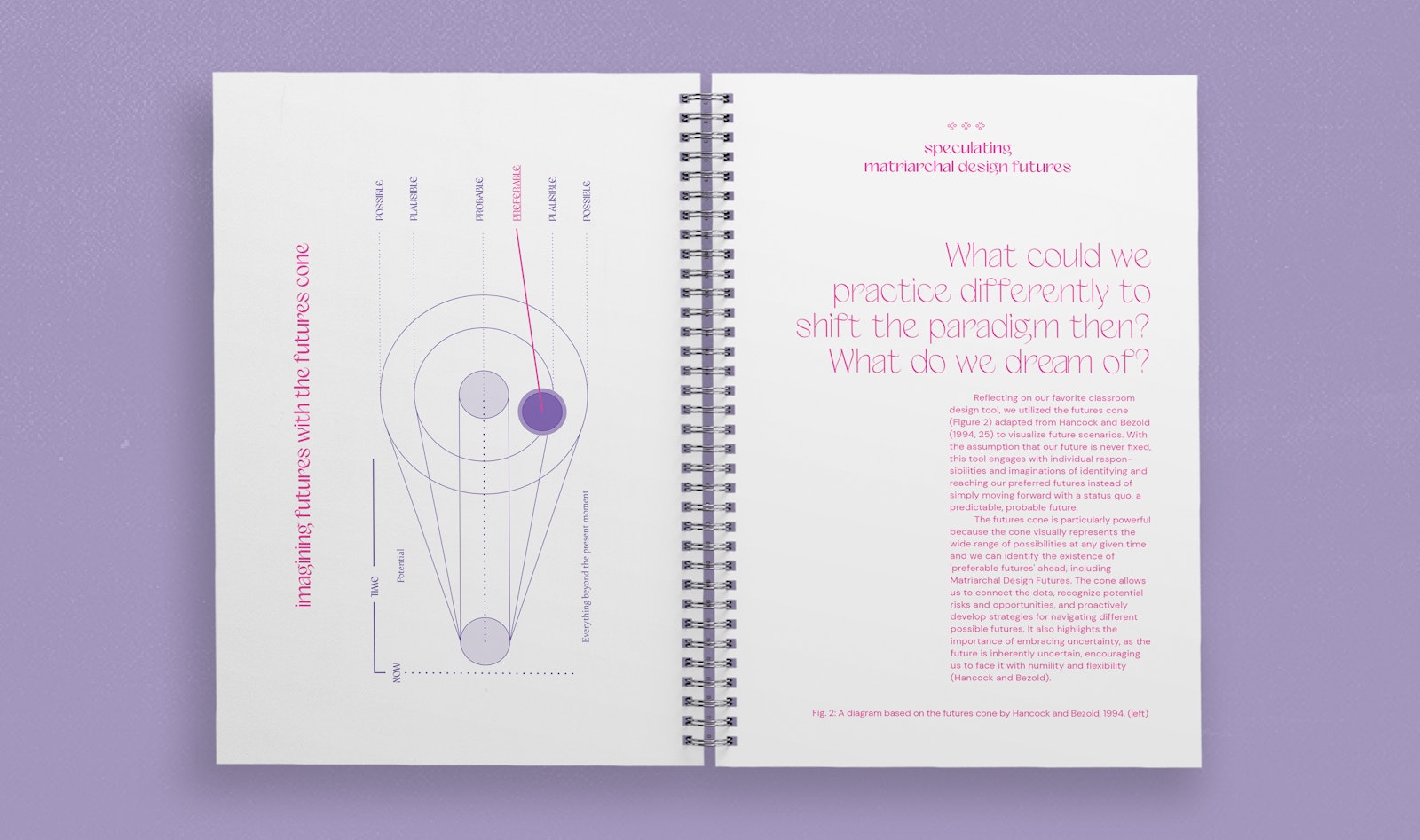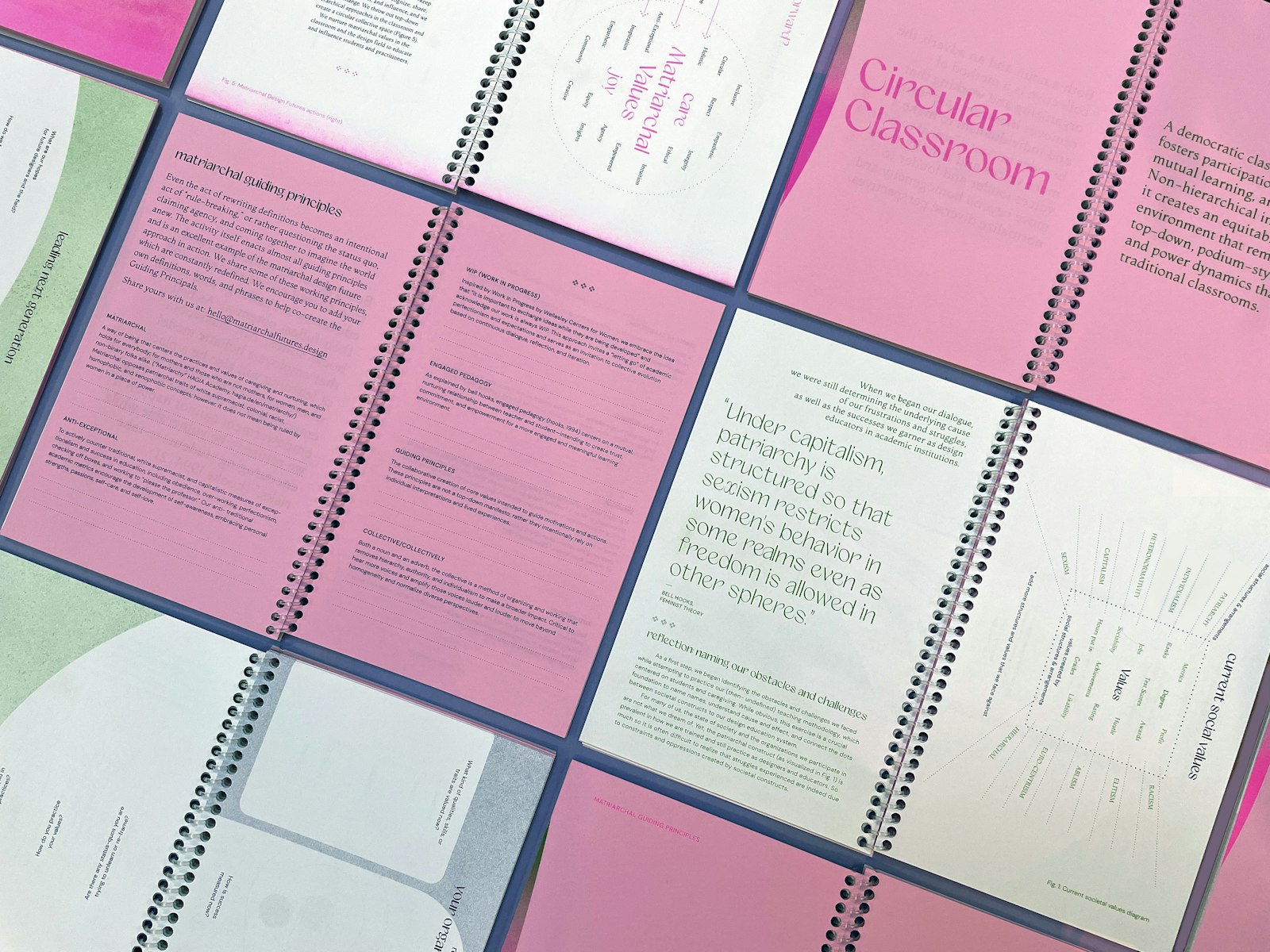Overview
Matriarchal Design Futures is a non-capitalistic, non-hierarchical pedagogical framework—centering the practices and values of caregiving and nurturing, which holds for all identities: for caregivers, mothers, those who are not mothers, women, men, and nonbinary alike. The project began in 2020 as a provocation and has since become a series of ongoing workshops, as well as a workbook, website, and social media community.
Matriarchal Design Futures asks—what would happen if a matriarchal design pedagogy was considered, our patriarchal training was unlearned, and we abandoned solutionism for unknowing—replacing human-centered design (aka design for consumption) by genuinely designing for the pluriverse? What would happen if we smashed the podium and instead created a non-hierarchical, non-linear approach to learning? Might we see that the lonely ladder to the top—the competitive, elitist approach to design study and practice could be abandoned for something more caring and restorative? And if we begin this at the root—at the very beginning of our students’ studies—can the field change from singular and privileged to more open, collaborative, and anti-exceptional? Can we make design school and the design field feel welcoming to all who desire to be there—not just those who already fit in? Is it even possible to de-couple design from whiteness, consumerism, capitalism, growth, and competition?
The open-source workbook is a collective work in progress and has been shared at The AICAD Academic Symposium, Attending to Futures (Germany), and IDSA (NY)—engaging participants in reflective prompts to imagine new futures together. All participants become contributors to the on-going publication. First Edition (200).
Notes on the design
Typography: Some typography is intentionally lowercase and typeset with the breath—poetically as if spoken aloud—this approach is meant to challenge systems and structures and create a non-hierarchical approach.
Nari: An experiment in variable font technology created by Aasawari Kulkarni attempts to answer the question, “what would it mean for a typeface to be feminist?” The result is an interactive variable typeface designed by a woman of color, one that has multiple voices that represent choice, expression, and inclusivity; it does not belong to any one extreme and is fluid in nature. It breaks away from the traditional “acceptable” proportions of letter design and is anything but neutral.
Montaga: An Old Style font designed by Alejandra Rodriguez, a type designer from Mexico. Inspired by Venetian calligraphy, it is one of the only typefaces available on Google Fonts designed by a woman. With a strong inclination in the modulation axis, it generates shapes with marked stress—giving it a strong personality. Montaga is a work in progress and will be improved regularly.
Gradient: The gradient represents fluidity, a non-linear blending of work and life, and a boundaryless, evolving, collective feel.
Colors: The colors are soft, bright, hopeful, and perhaps un-academic, unexpected—adding to the overall layered, decorative, and mysterious feel.
Circular motif: The circular motif references the circular economy, our approach to non-hierarchical pedagogy (no more podium), the nest, the womb, the sun, the moon, and Mother Earth.
Printing: The risograph printing is an intentional, slower process with shorter print runs and hands-on methods.
Binding/Finishing: In an attempt to deconstruct the hierarchy of the book and give agency to the reader/writer, the book can be assembled, read, and understood in any order.
Contributors
Matriarchal Design Futures is a work in progress. Anyone is welcome to add to the collective. Learn more at matriarchalfutures.design or @matriarchaldesignfutures
Co-created from 2020-23, A. Takase and H. Snyder Quinn (with community members)
Workbook, website, and social media design by A. Takase, H. Snyder Quinn, C. Rosas
Designed in Chicago, IL, and Providence, RI
Printed and bound by Tycho Horan at the Binch Press / Queer.Archive.Work studio
A collective work—we acknowledge all those seen and unseen—who have contributed to this work, including those who have mentored us as educators, designers, mothers, caregivers, and radical thinkers. Below, we’d like to credit specific contributors—designers, researchers, and workshop participants.
Aaliya Jamal Zaidi, Cynthia Lu, Claire Rosas, Lucinda Bliss, Karol Martinez-Doane, Kathleen Grevers, Laura Kozak, Emily Hanako Momohara, Martha Rettig, Caroline Schlegel, Sally Sutherland, Vanessa, Mafalda Castro Moreira, Ali Place, Cara Bremen, Sophie “Fi” Engel, Laura Rossi Garcia, Caroline Schlegel, Aasawari Kulkarni
Support: AICAD (The Association of Independent Colleges of Art & Design) / Attending to Futures: Matters of Politics in Design, Research, and Practice / DePaul University, Jarvis College of Computing and Digital Media (research support and funding) / Rhode Island School of Design (research support and funding) / Washington University in Saint Louis (research support and funding) / Ali Place for our dialogue in her forthcoming book titled Feminist Designer / Binch Press for risograph printing of our workbook.
- Co-creator
- Ayako Takase
- Co-Creator
- Heather Snyder Quinn
- Designer
- Claire Rosas
- Printing and Binding
- Tycho Horan at the Binch Press
- Typographer, Nari Typeface
- Aasawari Kulkarni
Project link
